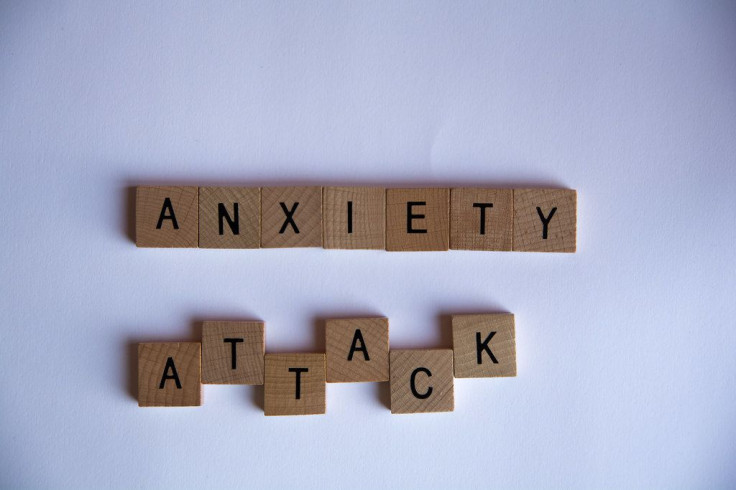Covid-created Anxiety; An Epidemic in the Making

A study conducted by the University of North Carolina and City University New York found that the majority of those who developed anxiety during the pandemic were facing financial problems. Nearly half, 45 %, of participants reported loss of income due to the pandemic and 17% reported losing their job.
The study, which has not been peer-reviewed, surveyed 5,250 adults in diverse communities.
More than one-third of participants reported having moderate or severe anxiety symptoms. Besides lost income, the participants linked their anxiety to a previous diagnosis of depression and having Covid-like symptoms. Anxiety was significantly higher in participants who experienced Covid symptoms.
A JAMA study published in August showed that internet searches for anxiety information was up 11% between March 13 and May 9 -- 375,000 more searches than if the pandemic had not occurred. The total number of searches was 3.4 million for that time period.
Depression and anxiety
Individuals who are medically diagnosed with depression often experience anxiety symptoms. Anxiety and depression are highly comorbid, meaning someone can have both conditions at the same time. People with comorbid health complications such as diabetes, obesity and cardiovascular disorders are at higher risk of anxiety because of their fear of Covid-19.
In general, diabetes, asthma and cardiovascular diseases are often linked to anxiety.
In the North Carolina study, a third of participants reported they were previously diagnosed with depression, another third reported having various health complications. There was a significant correlation between smoking and anxiety in the study. Daily smokers were more likely to have anxiety symptoms. Participants with extreme fear of being infected with Covid-19 and fear of loved ones becoming infected were at risk of developing anxiety symptoms.
Older adults at higher risk of severe Covid-19 had a lower prevalence of anxiety compared to younger people.
Widespread anxiety issues
Studies have shown an increase in the frequency of anxiety episodes during pandemic situations. During the SARS pandemic in 2003, 50% of recovered SARS patients showed anxiety. With a global pandemic, it is likely that this increase in stress can further increase anxiety.
Generally speaking, 31% of Americans will experience anxiety symptoms at some point in life.
Some factors that cause anxiety include ongoing stressful events such as work, change in work or home, pregnancy, trauma, relationship issues, abuse or death of a loved one. Physical health problems also play a role in anxiety.
Types of anxiety
General anxiety disorder (GAD) is defined as uncontrolled and ongoing worry. Studies have found that those with this disorder often have other problems, including major depressive disorder, bipolar disorder, and substance abuse disorder. These disorders all have similar symptoms and more than one can affect an individual at the same time.
Anxiety is not caused by a single factor, but a combination of personality factors, life experiences and health. Family history and the person’s state of mental health also play a role. Children who are timid, easily flustered, perfectionists or lack self esteem and want control could develop anxiety at some time in their life.
Symptoms of anxiety can be physical, psychological or behavioral. These include panic attacks, hot or cold flashes, racing heart, chest tightening and feeling restless or tense. Psychological symptoms include excessive fear, worry or obsessive thinking. Signs that are behavioral can be seen as avoiding situations that cause the feeling of anxiety. People who do not seek help to manage anxiety could end up with other problems because they manage their anxiety themselves, with alcohol, smoking or other drugs.
When seeking professional help, look for evidence of experience and avoid extreme claims.
Common misconceptions
Common misconceptions associated with anxiety can hurt recovery. Some may think that an attack can lead to loss of control, but it is unlikely you can faint due to anxiety. During an anxious episode, your blood pressure rises. Some may also think that avoiding stresses can help, but that can reinforce it or even make it worse. And one more thing -- anxiety can develop at any age, not just in childhood.
Anxiety is highly treatable but only a third or so of people with anxiety receive treatment. Living in a pandemic is difficult as it is, but if you find anxiety setting in there are many helpful resources if you need someone to talk to. If you have a medical emergency or have suicidal thoughts, call 911.
- National Alliance on Mental Illness (NAMI) : 1-800-950-NAMI (6264)
- Substance Abuse and Mental Health Services Administration (SAMHSA) : 800-662-HELP (4357)
- Substance Abuse and Mental Health Services Administration (SAMHSA) : 800-662-HELP (4357)
- National Institute of Mental Health (NIMH)
- Crisis Text Line : Text CONNECT to 741741
- National Suicide Prevention Lifeline : 1-800-273-TALK (8255)
- Mental Health America



























